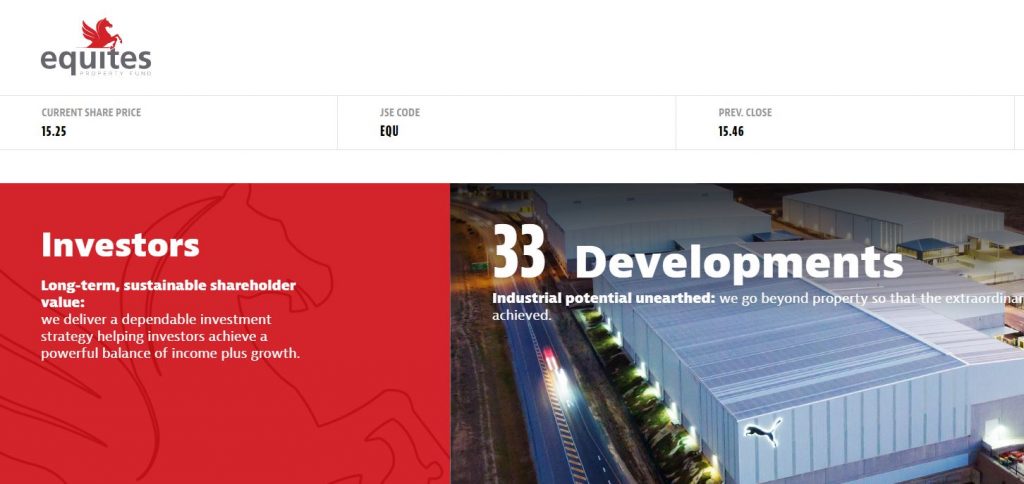The Ultimate Guide to Real Estate Investment South Africa

Real estate investing can be an excellent way to accumulate assets and generate passive income during retirement. But it’s essential that you select the right path for you.
No matter your level of experience or lack thereof, this guide will equip you with all the knowledge and information necessary to be successful in South Africa’s property market. Real estate investment South Africa can be extremely profitable or risky, so 1d SEn Holding has put together the ultimate guide for our readers.
The African real estate market is on the rise
The South Africa real estate is on the rise, a trend which will only intensify as Africa’s population continues to expand. Estimates place its population at over 2.5 billion by 2050 and economic growth exceeding global average rates – there are plenty of opportunities available in this rapidly developing continent.
Before investing in Africa’s real estate market, it is essential to take into account a few factors. Notably, investors should know that commercial properties are in high demand across most of Africa’s major cities.
Many investors are now searching for properties to invest in these locations. Fortunately, there are a variety of commercial real estate opportunities in Africa, such as office buildings and shopping centres.

There is a strong demand for retail and mixed-use developments
Consumers have become more and more accustomed to the advantages of living in an urban setting, choosing for new developments that provide retail, office and residential space all under one roof. This reduces travel time for work or leisure activities, saving them money on transport expenses while decreasing pollution emissions.
Another strong demand for retail and mixed-use developments comes from millennials, who tend to favor living in these environments due to their preference for walking or public transport over driving. Furthermore, they want to be close to amenities like grocery stores, coffee shops and restaurants.
Developers are reaping the rewards of this strong demand for retail and mixed-use developments, as these types of properties typically carry higher margins that protect them against economic volatility. Furthermore, developers have a better chance at securing commercial tenants on long-term leases, providing investors with more consistent income streams.
There is a growing middle class
The rise of South Africa’s middle class is a welcome development. These individuals don’t belong to either extreme groups, yet are able to afford basic necessities like food, clothing and housing.
The growing middle class in Southeast Asia can be attributed to economic development and a shift towards salaried employment culture. Despite these advances, inequality persists within the region.
The rising middle class in South Africa is a positive development trend that has benefited the economy. This group of individuals are able to purchase goods, which in turn increases tax revenues for the country.
There is a high yielding industrial sector
If you’re searching for an investment that provides a secure return, investing in property is likely your best bet. But it’s essential to select the right type of property.
For instance, many people choose apartments that provide work/life balance and are conveniently situated near the city. This ensures the property will remain in demand, and can either be rented out or sold at a later date.
Earning a steady income with property investment is an ideal strategy for those seeking to build their portfolio.
Despite South Africa’s current economic and political challenges, investors still have access to high-yielding industrial sectors. A Knight Frank report recently indicated that these businesses offer average yields of around 12% on average.
Investing in REIT South Africa
South Africa’s property sector is an integral component of our economy. Its active businesses contribute significantly to both the wellbeing of our nation and the standard of living for its citizens.
In 2013, South Africa implemented its REIT structure, designed to promote local and international investment as well as sustainably grow and maximize profitability.
What is a REIT?
Real Estate Investment Trusts (REITs) are companies that own and manage income-producing real estate. They work similarly to mutual funds, pooling the capital of many investors in order to purchase properties and generate dividends from them.
South African REITs offer investors a tax-sheltered way to own shares in real estate companies, providing them with steady income and reducing overall portfolio risk. Furthermore, South African REITS provide various tax advantages like reduced capital gains tax (CGT) rates on profits and exemption from Securities Transfer Tax when buying or selling their shares.
REITs may take advantage of a special tax regime which allows them to deduct certain dividends paid out by their subsidiaries as expenses and get partial exemption for foreign dividends declared by controlled overseas property companies. Nonetheless, this system has its drawbacks; thus it is recommended that any company wishing to list as a REIT obtain detailed tax advice regarding the intricacies associated with such an organization.
Investing in South African REITs
Investing in South African REITs is a cost-effective and straightforward way to gain exposure to the property market. These pooled funds function similarly to mutual funds for real estate: they build up a portfolio of income-producing properties before distributing net proceeds back to investors.
Listed REITs are an attractive investment choice for both local and offshore investors due to their lower volatility and stable income stream. Compared to stocks, listed REITs provide more security.
Additionally, REITs are tax-exempt in South Africa when you buy shares or a property unit trust fund. Foreign dividends from non-South African companies to South African REITs may also be fully or partially exempted depending on where they originate, provided the dividend isn’t deductible for the foreign company and at least 10% voting rights are owned by the REIT.
Reits offer strong global exposure through their investments in properties abroad; indeed, over 50% of the FTSE/JSE SAPY Index earnings come from outside Japan, making them an excellent global diversification option.
REITs in South Africa
REITs offer investors a tax-efficient way to invest in property assets. They are widely used around the world (Brounen & De Koning 2012), serving as an established property investment vehicle with widespread acceptance (Brounen & De Koning 2013).
South African REITs provide investors with a diversified selection of real estate properties through shares listed on the Johannesburg Stock Exchange (JSE). Furthermore, they enjoy special tax advantages and can serve as an alternative to stocks.
Similar to stocks, mutual funds allow you to purchase the full value of your share upfront and profit when the company’s worth increases. They pay dividends to shareholders and serve as a popular investment choice for financial funds and retirement portfolios alike.
REITs are capital-intensive and leveraged businesses (Case, Hardin & Wu 2012). Their performance is determined by the investment strategy employed and the firm’s capacity to retain profits or incur debt.
Investing in Equites REIT
Equites REIT owns, manages and leases a wide array of logistics properties around the world. Its global business value has seen significant growth over the years from 1 billion Rand in 2014 to over 16 billion Rand by 2021.
REITs offer investors a way to invest in diverse real estate portfolios without having to purchase, own and operate the properties themselves. Furthermore, REITs may generate dividend income through property management or leasing activities.
Listed on the Johannesburg Stock Exchange
Equites REIT is listed on the Johannesburg Stock Exchange with ticker symbol “EQU”. It is an industrial property fund.
The Company creates and acquires world-class logistics assets. Its South African portfolio consists of modern, high-value properties as well as existing industrial land.
Investors in this group enjoy stable income and growth from long leases with many blue chip tenants. Furthermore, its contract pipeline is strong, including new distribution centres for Puma South Africa and Rohlig-Grindrod.
The Company has invested in a UK distribution centre for Tesco and plans to invest more money in foreign currencies. Furthermore, it is actively building its South African portfolio with the purchase of eight logistics properties from Attacq.
Investing in a Listed REIT is Easy
Investing in a listed REIT is straightforward and can be an excellent addition to your portfolio. They offer numerous advantages, such as property diversification and dividend-based income streams.
REITs have historically provided high returns and dividend growth. Furthermore, they offer investors tax-exempt earnings since they don’t pay corporate taxes.
Shares in a REIT can be acquired through either a brokerage account or through an Exchange Traded Fund (ETF). With these funds, several public REITs become easily accessible, allowing investors to diversify their portfolio.
Furthermore, they can be held in tax-favored accounts like IRAs so investors can defer paying taxes on distributions.
Investors should be aware of the risks associated with REIT investments, such as market volatility and fees. To reduce these exposures to danger, investors should consult a reliable financial advisor and take time to thoroughly research REITs before investing.
Investing in a Listed REIT is Tax-Free
ReITs differ from traditional company stocks in that they do not pay corporate taxes. This eliminates the potential risk of double taxation and allows investors to keep more of their overall returns.
REITs offer diversification through their investments in various property types across the US and beyond.
They provide a steady income during an inflationary environment, helping to protect a portfolio’s value.
Unfortunately, REITs are not tax-exempt in every way; thus, you should consult with a financial advisor before investing.
Some REIT dividends are treated as ordinary income, while others are taxable capital gains distributions – commonly referred to as “return of capital.”
Capital gains from REIT stocks can reduce your tax basis in a REIT stock and the amount owed in future taxable capital gains. This makes REITs an attractive option for investors who wish to pay lower taxes on dividends and capital gains.








